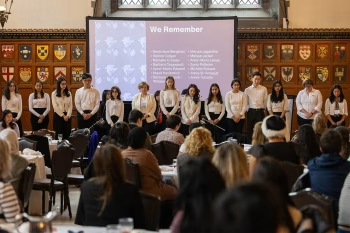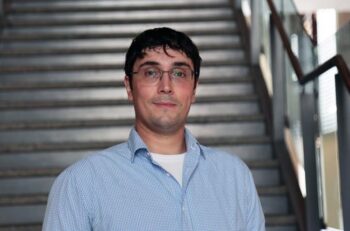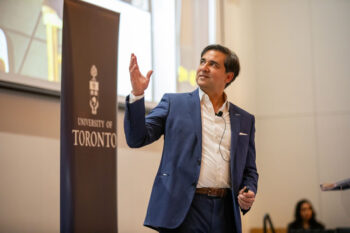November 20, 2009
By Colin Anderson
This December, world leaders will meet in Copenhagen, Denmark to forge a new international protocol to deal with climate change. This new treaty will replace the Kyoto Protocol, which expires in 2012, and will map out our common climate future.
The outcome of this conference is of particular importance as average global temperatures are rising at an increasing rate and scientists agree that significant reductions are required by 2020 to avoid reaching critical climatic tipping points.
Into this mix comes Robert Stupka, a MASc student in the Department of Civil Engineering, who has been chosen to join 11 other U of T students on a trip to take part in the upcoming international negotiations as a delegation started in the Department of Earth Sciences.
Stupka, who has been involved in urban environmental research with Civil Engineering Professor Chris Kennedy, is quick to distance himself from the official Canadian delegation. “We are a non-partisan group representing a wide variety of academic disciplines,” he says of his group. “We see this as an opportunity for education with regard to these negotiations. It’s about raising the level of awareness.”
The COP15 Group, as they are called on campus, is hoping that public education will sway the Government of Canada toward a more active, progressive approach to climate change talks. Canada has traditionally stalled talks and voted against international cuts in the past.
Following with their educational goals, COP15 hosted a public panel discussion last week entitled, ‘Climate Change: What You Need to Know!’ The event, which focused on the science, myths, policy, and outcomes related to climate change, drew a crowd of the curious, concerned, passionate, and downright angry.
Danny Harvey, Professor in the Department of Geography, began the evening with an analysis of the myths around climate change. His stark predictions set an urgent tone to the debate and served as a clarion call to those in the audience.
Doug MacDonald, Professor in the Centre for Environment, provided a comprehensive picture of the politics behind global climate regimes, and argued that cooperation, not enforcement, would be the most effective political model with which to green the future.
Kennedy gave a historical account of the role urban systems have played in climate change. His thesis, that better building codes are the one fundamental key to any serious emissions reductions, was largely supported by the panel.
Civil Engineering Alumnus and President of Halsall Associates, Peter Halsall, rounded out the panel and gave a refreshingly candid account of the role that engineers play in designing and supporting the systems that create and solve problems on a global scale.
The debate was lively and largely reflective of our uniquely Canadian economic-political situation. Activists argued that cuts needed to be legislated into existence swiftly and with authority, while the more conservative in the crowd argued that such an approach was just not politically feasible given Canada’s political reality.
The COP15 group will continue to host great educational and awareness throughout the winter months. Visit www.uoftcop15.ca for a full listing and to participate in their YouTube video campaign, where you get to tell the Government of Canada what you want out of these climate talks.



